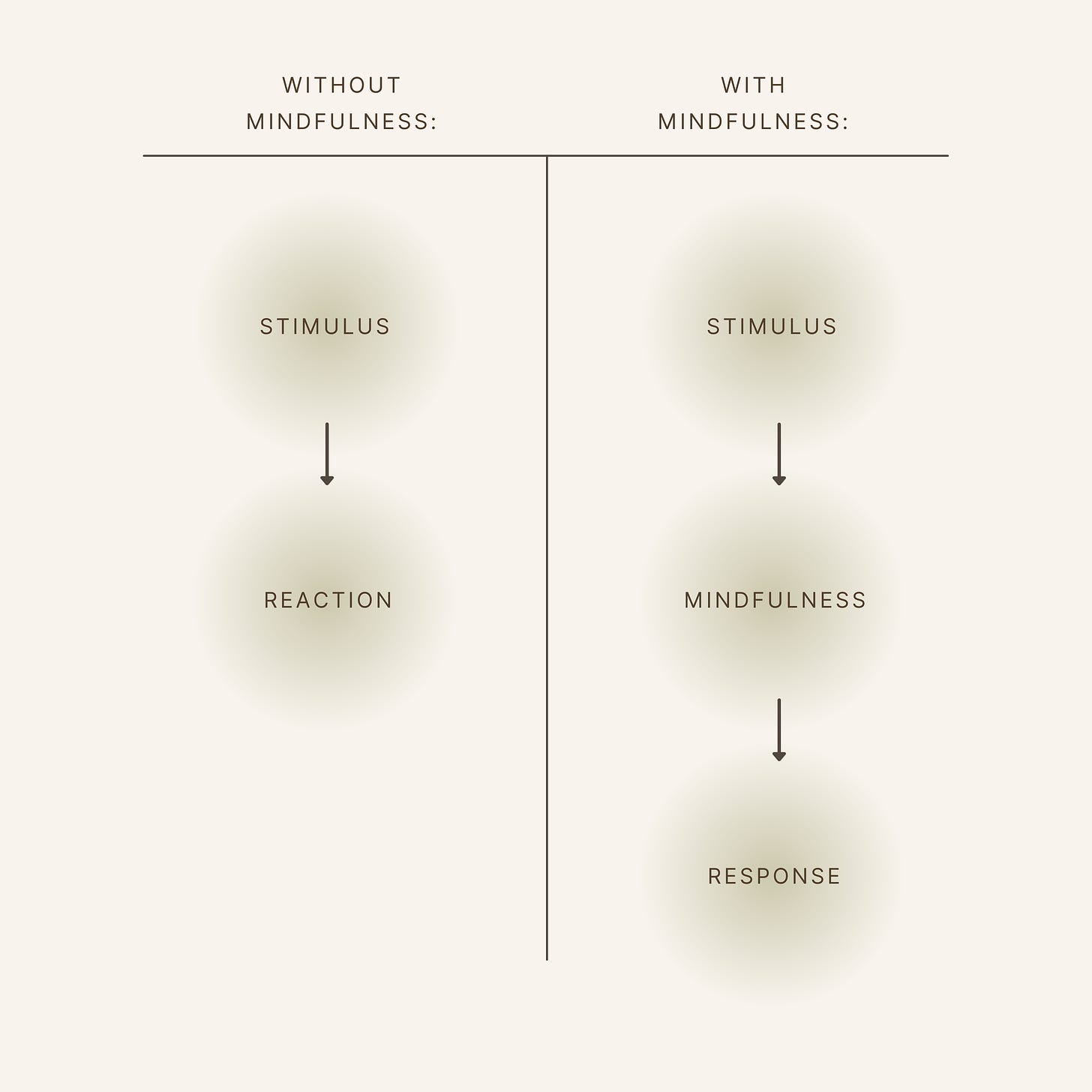The positive impacts of mindfulness
Mindfulness is awareness of what’s happening in the present moment without judgment but with acceptance. It includes being aware of your feelings, thoughts, bodily sensations, and the environment around you through a gentle, nurturing, and balanced lens.
When we practice mindfulness, we tune into the present moment. What are we experiencing right now? What are we feeling in the body right now? This keeps us from dwelling on the past or worrying about the future.
Being present wakes us up to our own lives. The more aware we are from moment to moment, the more choice we have regarding how we react to our experiences. Much of the time, we run on autopilot.
The benefits of practicing mindfulness
There is a plethora of research showing the benefits of practicing mindfulness. Berkeley’s Greater Good Science Center lists these positive impacts:
Mindfulness is good for the body. Mindfulness meditation helps boost our immune system and improves sleep quality.
Mindfulness increases positive emotions while reducing negative emotions and stress.
Mindfulness changes our brains: Research has found that it increases the density of gray matter in brain regions linked to learning, memory, emotion regulation, and empathy.
Mindfulness helps us focus: Studies suggest that mindfulness helps us tune out distractions and improves our memory, attention skills, and decision-making.
Mindfulness fosters compassion and altruism. Research suggests mindfulness training makes us more likely to help someone in need and increases activity in neural networks involved in understanding the suffering of others and regulating emotions. Evidence suggests it might boost self-compassion as well.
Mindfulness affects the way we see ourselves: People who are more mindful have a stronger sense of self and seem to act more in line with their values. They may also have a healthier body image, more secure self-esteem, and more resilience to negative feedback.
Mindfulness can help combat bias. Even a brief mindfulness training can reduce our implicit biases and the biased language we use.
Slowing down to act
There is a lot of urgency that comes with activism and advocacy work. For example, the climate crisis is no longer just a future threat. It's already here, and we are nowhere near the best-case scenario when it comes to what our future may look like. Urgent and drastic measures must be taken to ensure a future for all humans on our planet.
This type of stress and pressing need has led to experiences of burnout, anxiety and depression, and feelings of failure and helplessness (at least for me personally). It's difficult to imagine slowing down when the world is literally on fire, but sometimes allowing the space to take a breath and be present allows our awareness to shift from rumination to solution-based thinking. Simply put, when we are able to remind ourselves to stay present, we are better equipped to act.
I'll share a personal story to give an example of the idea of slowing down to act. When I first started diving into the bottomless hole of climate change research, I was overwhelmed with the feeling of panic and urgency. A friend brought up in a conversation with me, that learning about how our actions contribute to climate change is so overwhelming to her, that it keeps her from acting altogether. At that moment, I snapped back with examples of simple things she could do to lower her footprint, which kept me from truly hearing her.
My immediate response added to her stress and I could see her begin to shut down. Naming a list of things to do to someone who is feeling overwhelmed is not helpful. If I would have taken a moment to pause and really listen to her, I would have been able to see the needs beneath her words, that it wasn't about the lack of desire to act, but more so that the topic itself is so all-consuming she didn't know where to begin.
Once I realized what I had done, I was able to apologize for adding to her stress and we went on to have an incredibly positive conversation about the burnout associated with issues like climate change, even though individuals aren't the ones most at fault for what is happening to our environment. Both of us slowed down in that conversation and were able to talk through ways we felt we could make a difference while also taking care of ourselves.
When we allow ourselves the time to pause and settle our minds, we are much more likely to lead our actions, conversations, and experiences with presence, humility, intimacy, curiosity, and acceptance.
Three good things:
Stanford University will be powered entirely by renewable energy in 2022.
Paul Hawken’s new book Regeneration: Ending the Climate Crisis in One Generation
This kitten wearing a crocheted mushroom.
An action to take:
A scholarship for aspiring female cinematographers has been established to honor the memory of Halyna Hutchins. If you are willing and able, consider donating here.
Sources:





